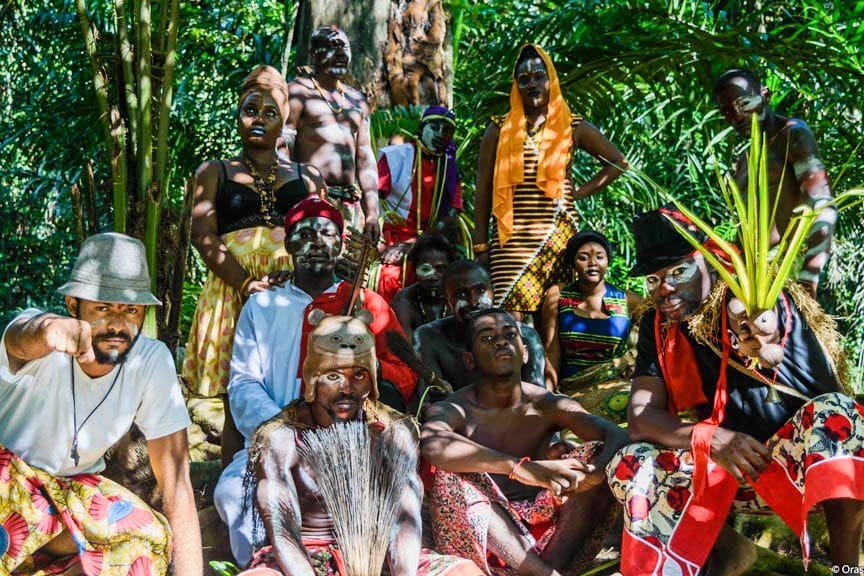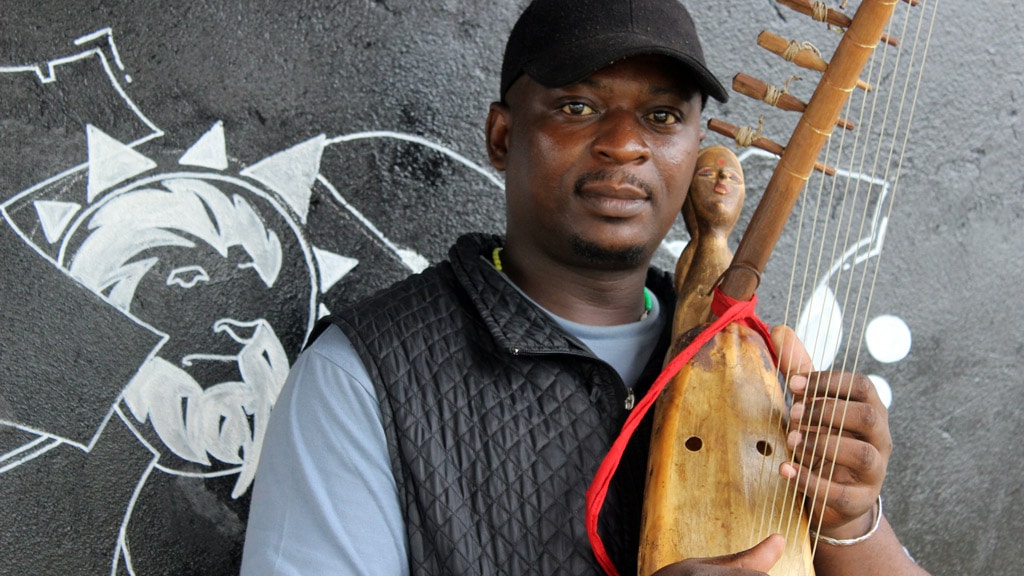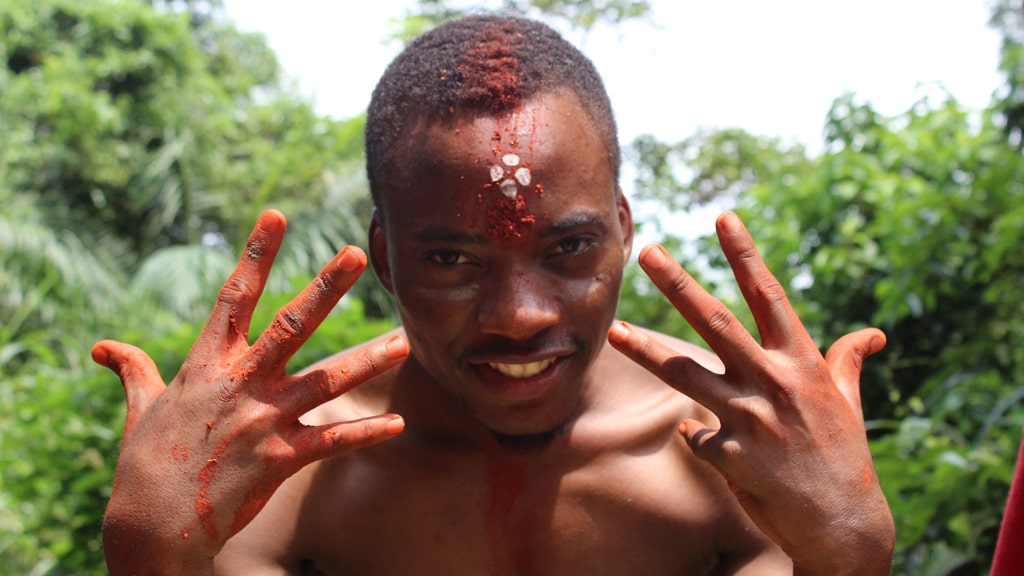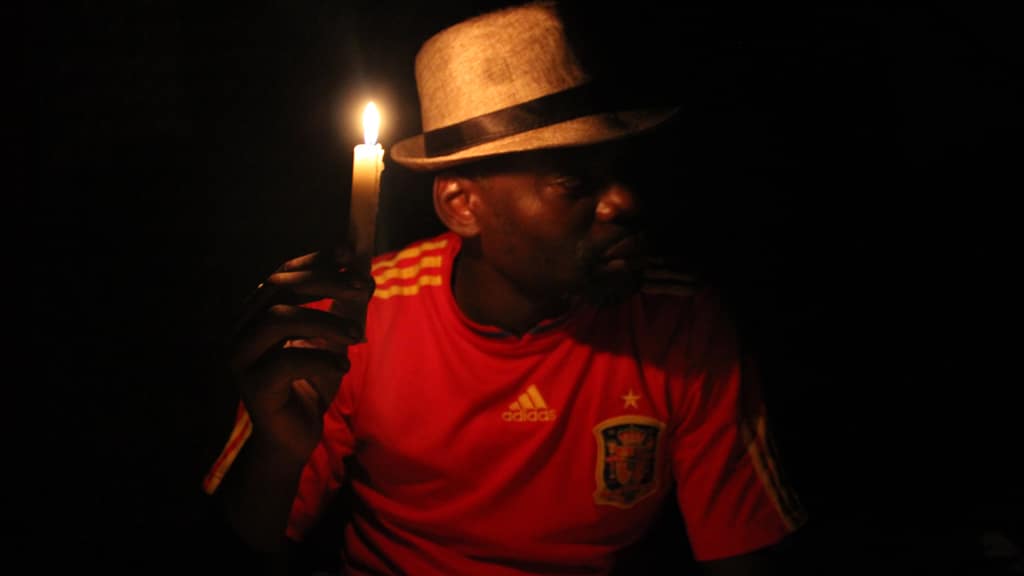We are Bwitists and Healers in Gabon. Here’s What We Think of the Global Interest in Iboga. | Part 4
The Western world cannot receive the benefits of iboga if they don’t try to understand and assimilate the traditional approach. Read the full series.

Psymposia is a 501(c)(3) nonprofit research and media organization that offers critical perspectives on drugs, politics, and culture. We rely on contributions from our readers and listeners. Your support is vital to sustaining Psymposia.
Support Psymposia’s independent journalism on Patreon and help us drive the Mystery Machine! We’re a bunch of meddling kids who are unmasking the latest shenanigans on the psychedelics beat.
Editor’s note: When we were outlining the topics we wanted to explore in this series, having the Gabonese/Bwiti perspective was essential to us. As is too often the case in drug policy reform circles, we couldn’t have a series about ibogaine without talking with people who have intimate knowledge of the plant it comes from, iboga.
While we wanted to hear from scientists, advocates, and patients, getting those perspectives, given our network, is easier for us. What isn’t easy is finding people living in Gabon who have been initiated in different Bwiti traditions. In addition to the difficulties of finding these perspectives, we needed to find someone who spoke French to translate it. We thought we had failed.
Over the weekend we got some help from Jean-Nicolas Dénarié, who we interviewed in Part 3, How has Western influence changed the traditional use of iboga in Gabon? We talked to a French guy living there. Jean-Nicolas connected us with Chef Keza, Rodzeng, and El Joackim Nfeya, three Bwiti healers and members of the Gabonese collective Zion High, and translated their thoughts on iboga from French.
We are Bwitists, healers, and members of Zion High, a Gabonese collective that promotes culture through music and art. We are also responsible for the development of a permaculture project in our village, where healings and ceremonies of the Dissumba (Vungu) Bwiti tradition regularly take place.
We consider the Bwiti tradition as the learning of natural laws that lead an individual to harmony with their environment, recognizing all levels of their existence. After observing the way that Western people view Bwiti and the use of iboga, we would like to say a few words about it.
Iboga is a sacred plant. It is sacred because it belongs to a particular environment and a spiritual tradition. It is sacred because it is considered as such within Bwiti. Thus, it belongs to Bwitist tradition.
Of course, it may not be considered sacred for other peoples in other places. The consecration of iboga is a symbolic behavior, the symbol being dedicated to the activation of a principle, a spiritual law. In the same way, Gui (mistletoe) could be considered a sacred plant in the Druidic tradition.

When we initiate into Bwiti there are successive steps, sometimes rather long (a traditional initiation may last one year), which allow the candidate to prepare for initiation. This time for pentinence forges the humility, determination, patience, and courage of the initiate. It is precisely these steps that allow the candidate to develop a relationship to the sacred. Without this relationship, it would be very difficult for the candidate to carry on their spiritual accomplishments. Relationship with the sacred helps to delimitate thoughts, words, and actions, and it’s through the application of principles perceived on the spiritual levels that the candidate moves forward on the path of knowledge.
In principle, there’s no problem that initiation happens outside the borders of the territory called Gabon. But some objections may rise about the way it is used – the environment and the symbolic system of the ritual. We understand that peoples whose spiritual traditions are nearly extinguished may look to African tradition for answers they cannot find at home, but to us it seems illogical to export the Bwiti tradition, and iboga, outside of its traditional context.

Bwiti is the spiritual tradition transmitted by Pygmies, who were the first inhabitants of the forest. Bwiti is linked to this forest, its elements, its plants and entities. Spiritual traditions are linked to the land where they are practiced. If some people have lost their traditions, it’s quite natural that they try to reconnect by borrowing other people’s traditions, but it should be done with the aim of reconnecting to their own land, entities, and rites.
In the same way that we consider it illogical to export the history and customs of any Western Judaic tradition to Africa or any place where it would impose on Bantus, Ashantis, Bretons, Hopi, or any other peoples, we consider it unfruitful to export a Bantu tradition to other areas of the world. The spiritual understanding that emanates from Bwiti can and must spread around the world, but not the rituals and rites specific to our people, environment, and history.
Here, the use of iboga isn’t considered a medicine in the Western sense. In our understanding, iboga doesn’t only cure the physical body – but the whole set of bodies, all the levels of a human being. It is in this paradigm that iboga takes all its power. The simple act of extracting ibogaine attacks its sacredness. It breaks the harmony between the plant and the person who ingests it. To eat ibogaine is not the same as eating iboga. The approach being different, the effect is too.

Isolating the active alkaloid of iboga, ibogaine, enters us into a dangerous point in our understanding. We cannot take only what interests us and drop the rest; it’s not compatible with tradition. We are a whole, both with our environment and the whole universe. Attempting to isolate and control only what interests us has led the world to the disastrous situation it’s now in. We take oil without caring about the ecological consequences. We isolated the alkaloid of the coca leaves, and we all know the disaster it led to.
In Gabon there is a saying that the power of a plant is 50 % the prayer of the one that picks it up, 50 % the prayer of the one that receives it. We think that if other people want to profit from iboga’s benefits, they should try to understand the approach in which it is used in Gabon – the scope, the depth, and the essence of this tradition. When you are called to be a surgeon, you may not touch the scalpel the first day. You’ll first learn theories, go through challenges, and go to practice only when ready.
Seeing how Westerners use iboga, we understand that it’s necessary to create a framework that would allow benefits for all. Yet the Western world, or any other civilization, cannot receive the benefits of Bwiti, or of iboga, if they don’t try to understand and assimilate the traditional approach. African medicine is completely different from modern Western medicine. Traditional medicine takes into account all levels of existence – physical, mental, spiritual, moral, social, etc. It’s a holistic approach in which no disease may be understood without considering its connections with all of those levels.
To our Western brothers and sisters – we easily understand your need and desire for healing, and we’re ready to help or advise anyone who’d like to know more. But we also want to acknowledge and respect the advice of our spiritual leader, Papa Manmouss, who said in regards to the preservation of ritual context and rites, “It’s not obligatory, but it’s necessary.”
Chef Keza is a Gabonese Fang rapper of the hip-hop group Movaizhaleine, president of Zion High, science teacher, Bwitist, and traditional healer in Dissumba Vungu Bwiti (which is distinct from the Dissumba Fang).
Rodzeng is a Gabonese rapper, composer, producer, mixer, and filmmaker. He studied chemistry and recently received his civil engineer diploma. Rodzeng is an active Bwitist and healer in Dissumba Vungu. He also works with Zorbam Production, the production company for Movaizhaleine.
El Joackim Nfeya is a professional harp player, composer, singer, and mixer for Zion High. He knows many traditions in Bwiti, from his own Fang heritage as well as from other ethnicities, and is getting more and more involved in the practices of the Dissumba temple.
Read Part 5: Talking ibogaine research for opioid addiction with Thomas Kingsley Brown
Hey! Before you go… Psymposia is a 501(c)(3) non-profit media organization that offers critical perspectives on drugs, politics, and culture. We strive to ask challenging questions, and we’re committed to independent reporting, critical analysis, and holding those who wield power accountable.
Our perspectives are informed by critical analysis of the systemic crises of capitalism that have directly contributed to the unmitigated growth of addiction, depression, suicide, and the unraveling of our social relations. The same economic elite and powerful corporate interests who have profited from causing these problems are now proposing “solutions”—solutions which both line their pockets and mask the necessity of structural change.
In order for us to keep unpacking these issues and informing our audience, we need your continuing support. You can sustain Psymposia by becoming a supporter for as little as $2 a month.





